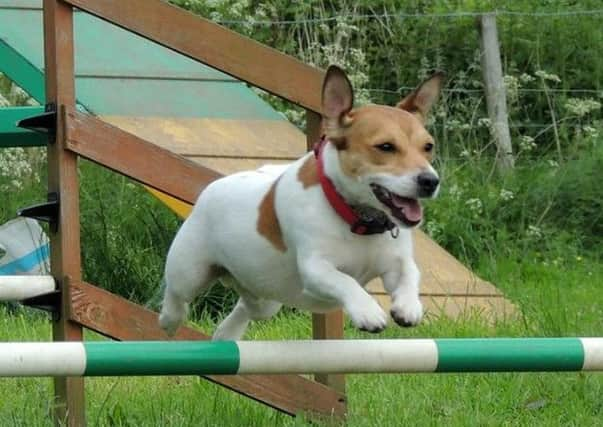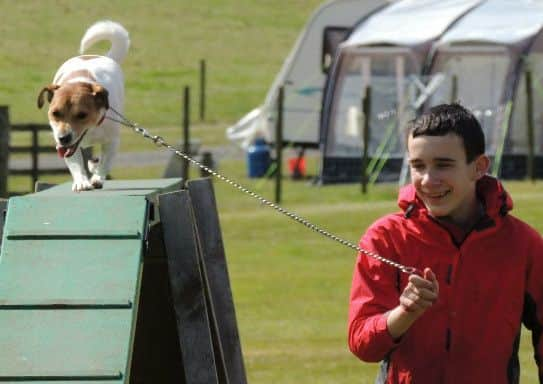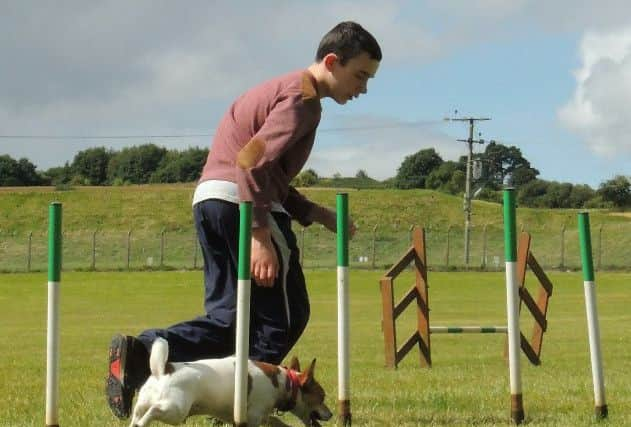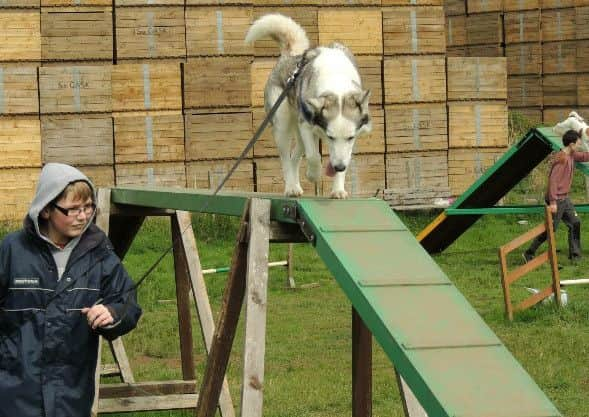How dogs are helping children with autism in Scotland


But for children with autism, dogs can offer not just companionship but therapeutic benefits too.
As well as helping children socialise, evidence has shown that specially trained dogs can help reduce the sensory chaos experienced by those with Autistic Spectrum Disorder (ASD).
Advertisement
Hide AdAdvertisement
Hide AdOne voluntary organisation leading the way in the field is Dog Agility Therapy Autism (Data) on Tayside.


Run by Blair Cochrane, who works as an autism carer for children at Dundee City Council, the programme lets children learn basic dog-training tricks in a relaxing atmosphere.
For Mr Cochrane himself, the business allowed him to combine his two passions of dog agility training and caring for people with autism.
Mr Cochrane, who also has 16 years’ experience caring for people with ASD, said: “I wanted to create a programme of therapy whereby the use of dogs would help reduce the sensory chaos that individuals with ASD can experience.
“Using conditioned specific structured stages, I aim to teach those with the disorder how to engage, interact and understand the social rules of a successful partnership.


“When the child smiles and interacts with their dog, it’s the most rewarding part.”
The Data project has been running for five years and has proved so popular that a Facebook page has been set up, allowing members to organise training sessions with the animals.
The volunteer-led scheme is now looking for £5,000 of funding to expand and develop the therapy service, with a digital fundraising campaign under way on Crowdfunder UK
Advertisement
Hide AdAdvertisement
Hide AdThe sessions, which typically cost £10-£15 for the hour, provide an opportunity for parents and carers to watch their children as they train alongside their dog.


Sessions will be cut short, however, if the child or dog is feeling overwhelmed.
Mr Cochrane believes interaction with the dogs has improved the children’s social skills at home and in school.
“Well-trained dogs are socially non-threatening; therefore they have the ability to open the door into the world of an individual with ASD,” he said.


“The main challenge is in the first few sessions when we’re trying to get the dog to complete the obstacles. We also aim to make it fun for the child so they enjoy the sessions and want to come back.”
Typical obstacles on the course include jumps, weaves, tunnels and an A-frame, where dogs scale elevated ramps before dropping back down to the floor.
James, one of the children who uses Data, is undergoing agility training therapy with his third dog. Another boy, Jay, is training his second dog.
Charlene Tait, director of development at Scottish Autism, said dogs can help lower the stress levels of children who suffer from autism.
Advertisement
Hide AdAdvertisement
Hide AdShe said: “What we do know is that people with or without autism can have a fear of animals, though there are those who can experience benefits such as reduced stress while interacting with animals such as dogs and horses. Those with Autistic Spectrum Disorder can feel a lot of stress in social situations, so things that can help to reduce this are welcomed by us.”
The charity works with local authorities across Scotland to improve service provision and increase the visibility of ASD within the public sphere.


The Data fundraiser comes as the University of Aberdeen published a study suggesting that techniques used by expressive people can be fostered in those with autism to improve their social communication skills.
The study, published in the Cognitive, Affective and Behavioural Neuroscience journal earlier this week, theorised that it “may be possible to promote empathic ability [in those with ASD] using drama-type activities that teach social actions like facial expressions and gestures.”
For Mr Cochrane, his focus is on generating enough support to keep Dog Agility Therapy Autism running to help Scottish children with ASD: “For 2016, I’d like to see more children from all over Scotland involved, along with their dogs.”
To support Mr Cochrane and Data visit www.crowdfunder.co.uk/dog-agility-therapy-autism-1